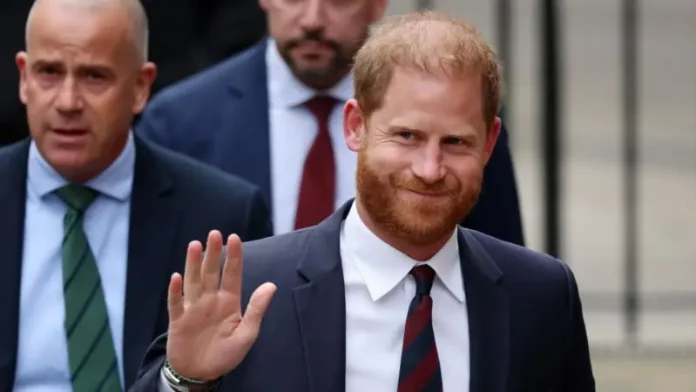Prince Harry’s departure from royal duties led to “a unique set of circumstances” that justified a flexible approach to his UK security arrangements, a government barrister told the Court of Appeal this week.
The Duke of Sussex is appealing a decision to downgrade his publicly funded police protection when visiting the UK. His legal team argues that the new arrangements place his safety at risk and are “manifestly inferior.”
Government representative Sir James Eadie KC defended the decision, stating that the Royal and VIP Executive Committee (Ravec), which determines security for members of the Royal Family and other public figures, acted appropriately. He stressed that Ravec operates under royal prerogative rather than statutory law, allowing discretion in unusual cases such as Prince Harry’s.
Sir James pointed out that the Duke’s decision to step down from royal duties and relocate to California in 2020 meant that he no longer fulfilled the typical criteria for full royal protection. Nevertheless, Ravec considered his case individually, which Sir James described as both necessary and appropriate.
“His situation falls into a category of its own,” Sir James said, emphasizing that Ravec’s role is to make informed and nuanced decisions, particularly in cases that deviate from standard protocol.
Prince Harry was present in court for the second day of the hearing, sitting beside his legal team and occasionally taking notes. He received a wave of media attention as he entered the courtroom, acknowledging the press with a nod.
Shaheed Fatima KC, representing the Duke, closed her arguments with an emotional appeal, stating: “There is a person sitting behind me whose safety, whose security, and whose life is at stake.” She criticized the so-called “bespoke” process Harry was subjected to, saying it amounted to unjustified and inferior treatment compared to others.
Ms Fatima further argued that Ravec failed to obtain proper risk assessments before deciding to scale down the Duke’s security and claimed this deviation from standard procedure was unlawful. She emphasized that “bespoke” in this context did not mean “better” but instead meant being “singled out” for lesser protection.
Following the hearing, the courtroom briefly erupted when a woman accused the press of driving Harry away from the UK. She was removed shortly after the Duke was escorted out by his security team.
A closed session later took place without media access, where more sensitive security information was discussed. The hearing concluded before Lord Justice Vos, Lord Justice Bean, and Lord Justice Edis, with a written judgment expected in the coming weeks.
The Home Office, which oversees Ravec, continues to oppose the appeal and maintains that security decisions for Prince Harry are now made on a case-by-case basis, in line with how other high-profile individuals are treated when visiting the UK.


